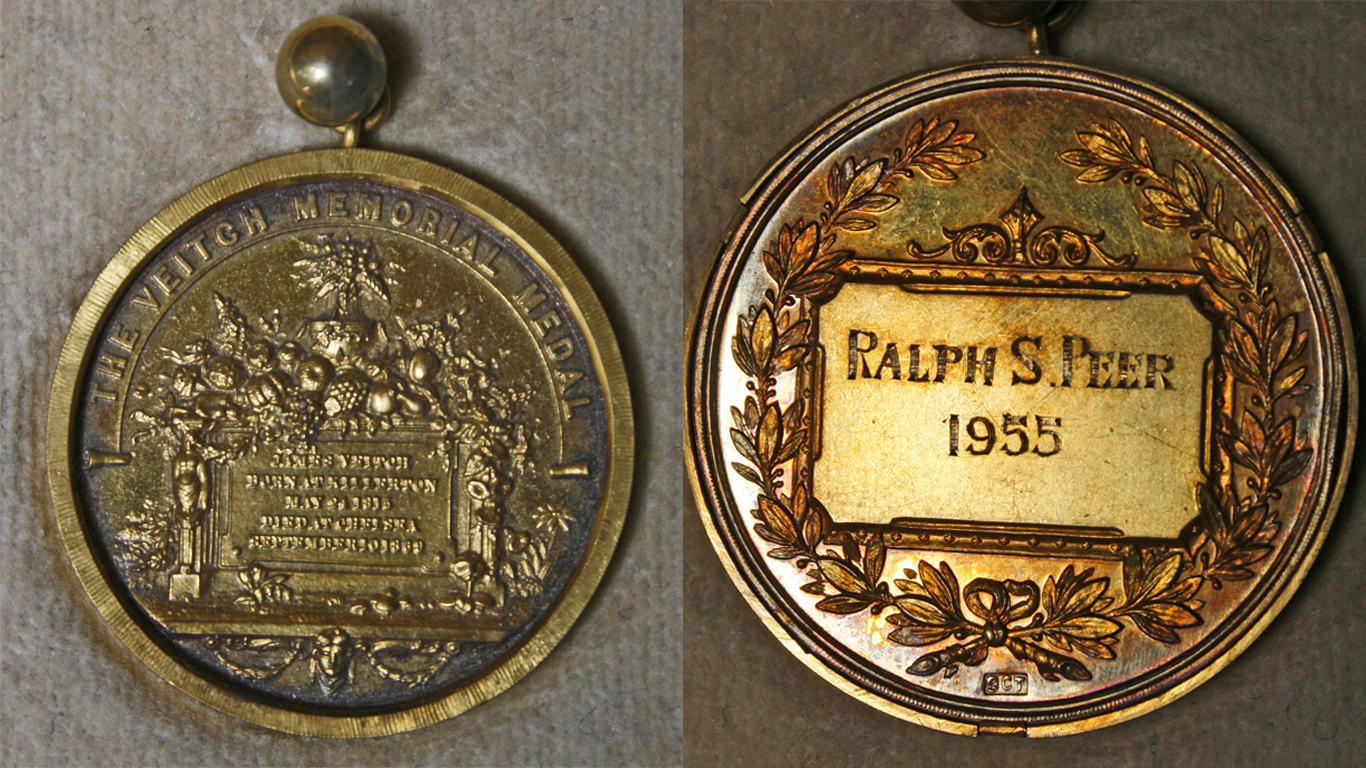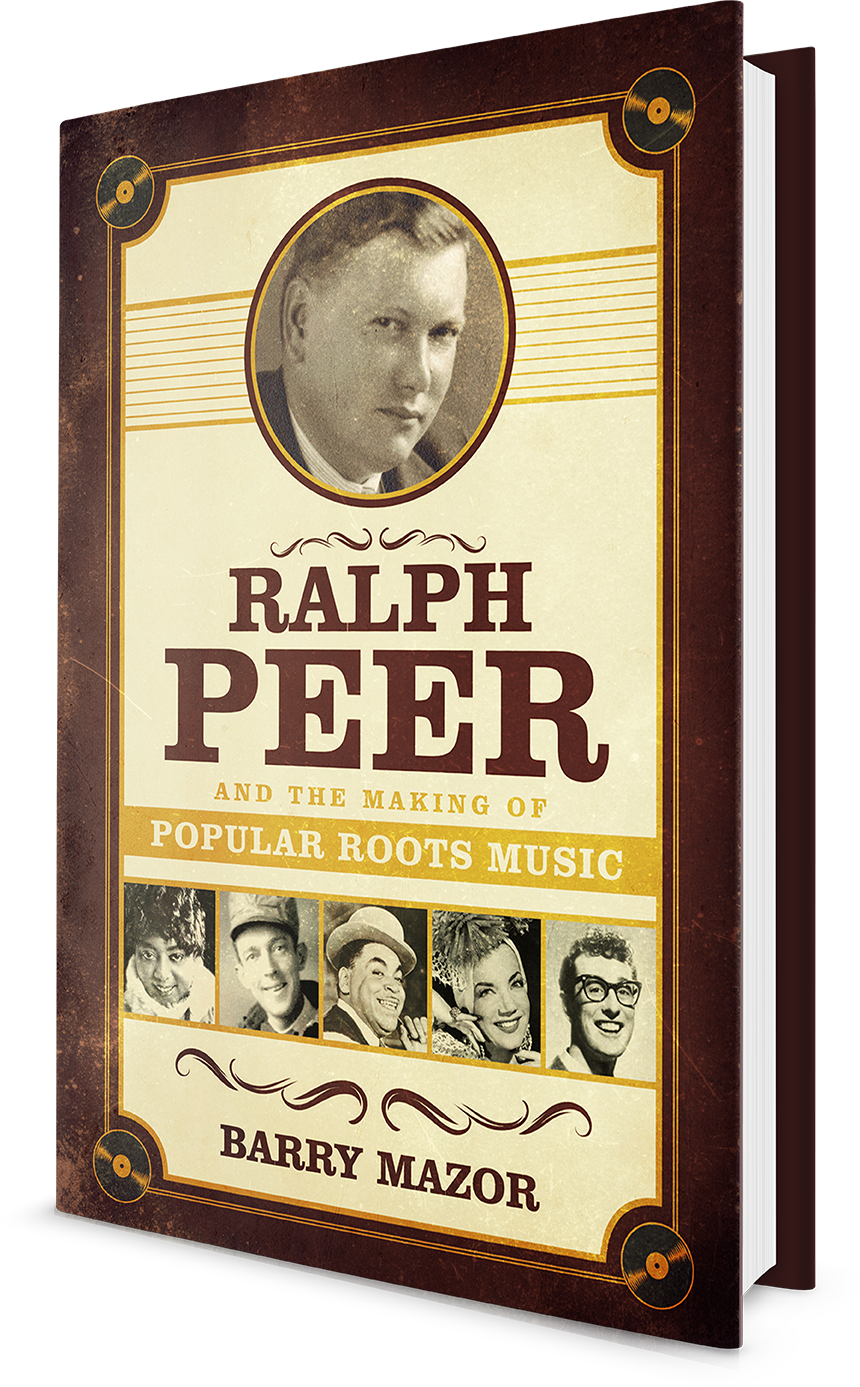This is the first biography of Ralph Peer, the adventurous—even revolutionary—A&R man and music publisher who changed the breadth and flavor of popular music in the United States and around the world. It is the story of the life and 50-year career of the man who was crucial in discovering star musicians and establishing the genres of blues, jazz, country, gospel, and Latin music. It tracks Peer's role in such groundbreaking episodes as recording the record that sparked the blues craze, the first country recording sessions with Fiddlin' John Carson, his discovery of Jimmie Rodgers and the Carter Family at the famed Bristol Sessions, the popularizing of Latin American music during World War II, and the postwar transformation of music on the airwaves that set the stage for the dominance of R&B, country, and rock music.
Read more about the company he founded today.




Barry Mazor is a longtime music, media, and business journalist. He is a regular contributor to the Wall Street Journal and to the online music magazine medium/cuepoint, and is the author of Meeting Jimmie Rodgers and Connie Smith: Just for What I Am. He is the former senior editor and columnist for No Depression magazine and his work has appeared in numerous publications, including American Songwriter, the Nashville Scene, the Village Voice, and the Washington Post. He was awarded the Charlie Lamb Award for Excellence in Country Music Journalism in 2008. He lives in Nashville, TN.
In 2017, Ralph S. Peer was featured in the Emmy nominated PBS/BBC American Epic. The documentary series represents a ten-year odyssey by Allison McGourty, director Bernard MacMahon, musician Duke Erikson, and audio engineer Nicholas Bergh, that involved tracking down countless long forgotten musicians, restoring the music that they recorded and reassembling the technology that created it.
Presentation for the Ralph S. Peer award given to peermusic as the inaugural recipient for Publisher of the Year by the Latin Songwriters Hall of Fame held April 23, 2013 in Miami, FL. The honor will be given every year in his name.
In 1955, Ralph S. Peer was awarded the Veitch Memorial Medal by the Royal Horticultural Society (RHS). The prize honors "persons of any nationality who have made an outstanding contribution to the advancement and improvement of the science and practice of horticulture."






“This is an overwhelming book about an overwhelming character in the music field, a true visionary, who realized the potential power of common music long before anyone else - and who transformed the lives of many of those artists whom he recorded. We owe Barry Mazor a debt of gratitude for telling Peer's incredible life story, his monumental accomplishments, putting them all in one place, and bringing them to the light.” — Bob Dylan
“The musical road that runs through the work of Ralph Peer is a cultural highway that many genres ride on today. His story of pioneering the hustle of sound and style is a blueprint right to this digital age, as this book shows. It's a wonderful read.” — Chuck D, Public Enemy
“Ralph Peer was there first to discover and record roots music before anyone else. This remarkable man brought that [legacy] to the world, nurturing the early country, blues, jazz, and Latin artists. It's all in this book. Dive in and be awed.” — Donovan Leitch
“The world has been waiting for this! Ralph Peer is surely the most fascinating character in American vernacular music business history, and I personally thank him, since I otherwise would have been sacking groceries in El Segundo, or parking cars in Pacoima all these years. Mazor does a spectacular job weaving together the threads of Peer's discoveries in blues, jazz, country, and Latin. You will be amazed! I can't recommend this book strongly enough.” — Ry Cooder
“Ralph Peer’s true importance in American music is rarely understood outside of the music business, but Barry Mazor’s Ralph Peer And The Making of Popular Roots Music draws a compelling portrait of Peer as business innovator, music scout and publishing executive, detailing his visionary pursuit of musical riches in previously unexplored rural America and Latin America – yielding a body of recorded blues, country and pop that are the foundations of American musical culture.” — Laura Cantrell



